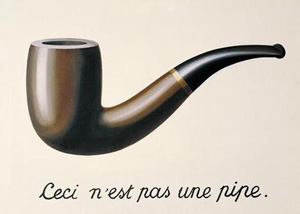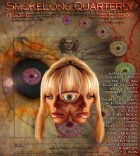What I love about this piece is the undercurrent of doom that exists in this relationship, that there’s something dark and terrible waiting for them and there’s no escape. And before that occurs, they want one last bit of Donna Summer, the anti-thesis of this deadly, inescapable force. It has an authenticity, as if this search for “summer” in a world devoid of it has a real poignancy and passion for both the characters and the writer. What does this piece mean to you?
Keep in mind this will be mostly literary armchair quarterbacking. I wrote this piece very quickly and submitted it proofread but without any true revision for content or focus. (Not something I recommend.) I was fortunate that Matt and the other editors saw potential in the story, and I happily incorporated the majority of their editorial input on it.
That said, your question has me at a bit of a loss because I didn’t for a moment intend to imply Adam shares this desire to search for “summer” (or connection, or transcendence) with the protagonist. If you’ll notice, once the protagonist asks him to listen to the last moments of the song, I offer no clues as to how Adam will respond. No dialogue, no description of his reaction. It’s very possible the protagonist is about to get laughed right in his face.
But Adam’s reaction isn’t included because it doesn’t matter. That the protagonist has made this effort to truly reconnect with a person important to him is what’s paramount. I believe the moment we lose the desire to connect with others is the “dark and terrible” thing we all must guard against. Even in a world of literal drugs and death, hope remains. Hope we can still reach others, and they reach us. But we must be willing to seize that hope no matter how incredible the odds. Especially then.
“Sometimes forever isn’t the point.” That line, for me, captures the complexity and tension of this piece. What meaning do you see hidden within this line?
Again, this is armchair quarterbacking. That particular line just popped out as I was writing.(It helped, I’m sure, to listen to “Last Dance” repeat over and over until I had finished the first draft.) But in retrospect, I like to think it means we can take just as much from the lasting connections we make with others as we do the more transient encounters. I’ve learned more about myself (and that, of course, is each writer’s only real subject) from men I only knew a day or a month than from some I’ve known for over a decade.
Donna Summer. Tell me all you can about what she’s meant to you as an artist, writer, human being.
This is a little embarrassing to admit, but Donna Summer really embodies no significant place in my psyche or my beliefs as an artist. I do think her music is inifinitely superior to most modern dance music where posturing has almost completely replaced a desire to convey an actual human experience. I appreciate her commitment for attempting real emotion in a genre of music where it’s certainly not required—or even appreciated.
This story jump-started when I decided to write a flash that played out entirely within the time constraints of a pop song. I hadn’t written in the six weeks since my grandmother’s death last August, so I decided to “assign” myself a writing exercise. I happened at the time to be listening to Donna Summer.
Give us some insight of how being an agnostic Eagle Scout has prepared you for the world.
Boy Scouts prepares you for nothing. The only skill I learned in my whole time there (which, admittedly was shorter than most other boys’ time; I attained that rank at age 13) was navigating with a map. To this day, I rarely get lost driving, and I’m thankful for that.
I realized when I was very, very young that I lacked whatever ripple in the mind that compels one to believe in a higher, spiritual power. Just as a believer will tell you he can’t imagine his life without “faith” in some benefactor lingering above, I can’t imagine my life with that belief. So I sought in other ways the transcedence that religion is believed to provide its followers.
As for life in general, being an agnostic primed me to be willing to search for answers outside societal boundaries. (Being homosexual and a Libertian helps, too.) Being an Eagle Scout is a great line at parties because—well, let’s just say I’m not the sort of guy you would expect to find tying knots and pitching tents.
The 2005 Edge Annual World Question (www.edge.org) asked a question that the BBC called “fantastically stimulating.” One year later, we ask you this same question: “What do you believe is true even though you cannot prove it?”
I wrote my first short story in January 2004. I didn’t write my first flash until July of the same year. I had made an absolute mess of most of my 20s. Almost every form of self-destructive behavior you could name. When my longtime friends called, they didn’t ask “How are you doing?” they asked “Is everything okay?”
I was so, so tired.
But since the summer of last year when I began to write fiction in earnest, I feel more connected not only to myself but, far more importantly, to the world outside the trivialities and disappointments of my everyday life. When I look back on a story, I come to understand some part of myself more fully. And, in the best instances, when I hear from a reader who felt an affinity with a character I created, I know I have helped another person on that same journey of self-knowledge. Even in the absence of any other comfort, that alone would sustain me.



 The SmokeLong Grand Micro Contest (The Mikey) is now an annual competition celebrating and compensating the best micro fiction and nonfiction online.
The SmokeLong Grand Micro Contest (The Mikey) is now an annual competition celebrating and compensating the best micro fiction and nonfiction online.